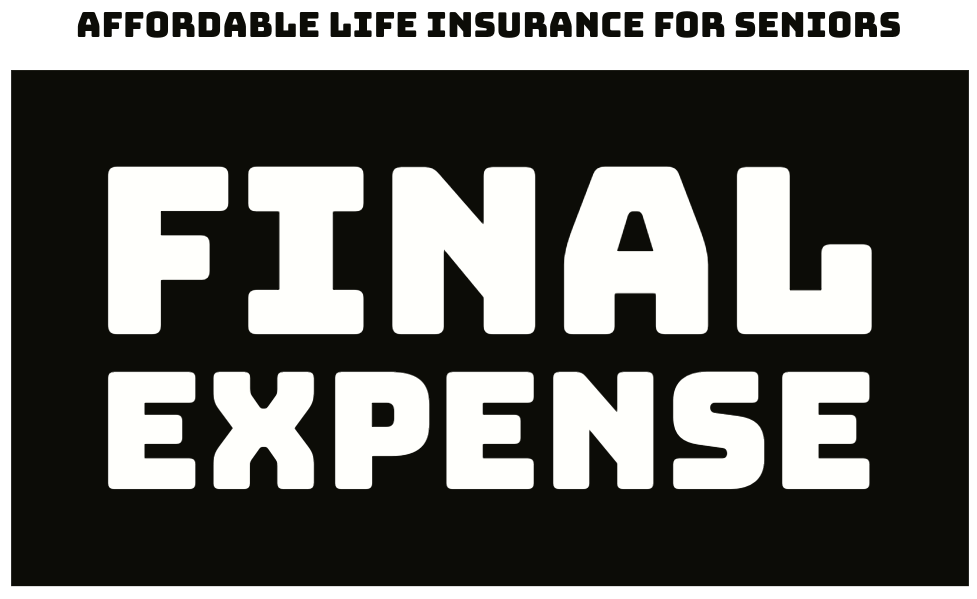Curious about what does life insurance cover? Life insurance primarily provides death benefits, covers final expenses, and replaces lost income for your beneficiaries. This guide will explore each of these aspects to help you understand how life insurance can offer financial security to your loved ones.
Key Takeaways
- Life insurance primarily covers death benefits, final expenses, and income replacement, providing a financial safety net for beneficiaries.
- Additional coverage options such as accelerated death benefits, cash value components, and riders enhance policy flexibility and financial security.
- Understanding different types of life insurance policies—term, whole, universal, and variable—is crucial for selecting the one that best aligns with individual financial goals.
Primary Coverage of Life Insurance

Life insurance serves as a cornerstone of financial protection, designed to provide a safety net for your beneficiaries upon your passing. The primary coverage includes death benefits, final expenses, and income replacement, ensuring financial stability during difficult times.
Understanding these core elements aids in determining the right coverage amount and the most suitable policy type.
Death Benefits
At the heart of any life insurance policy is the death benefit, the amount guaranteed to your beneficiaries upon your passing. This sum can include a spouse, family members, business partners, or even charities. The primary goal of death benefits is to provide immediate financial support, helping your loved ones manage ongoing expenses like mortgages, education, and everyday living costs. Having adequate death benefits is vital for your family’s financial security and stability during challenging times.
Life insurance death benefits are not subject to income tax, allowing your beneficiaries to receive the full amount intended. To claim these benefits, your beneficiaries will need to submit a claim form along with a certified copy of the death certificate. This process ensures that the financial support reaches those who need it most without unnecessary delays or complications.
Final Expenses
Final expenses can be a significant financial burden, but life insurance policies are designed to alleviate this stress by covering costs such as funeral services and medical bills incurred before death. These expenses, including burial fees and outstanding medical bills, can quickly add up, leaving your loved ones with a hefty financial responsibility. Including final expenses in your life insurance coverage ensures your family can manage these costs without added financial hardship.
When determining the necessary life insurance amount, consider final expenses along with other financial obligations like mortgage payments and college tuition. This comprehensive approach ensures that all potential costs are covered, giving your family a secure financial foundation during a difficult time.
Income Replacement
One of the most critical roles of life insurance is income replacement, ensuring that your dependents can maintain their standard of living after your passing. This aspect of coverage is particularly important if you are the primary breadwinner in your household. Replacing lost income, life insurance helps cover everyday expenses and provides financial stability for your loved ones.
To accurately assess your life insurance needs for income replacement, consider using the DIME formula, which evaluates debt, income, mortgage, and education expenses. This method ensures that your beneficiaries are financially secure and can continue their lives without major disruptions.
Careful planning and evaluation ensure comprehensive financial protection for your family.
Additional Coverage Options
Beyond the primary coverage, life insurance policies offer various additional options to enhance their benefits. These options, such as accelerated death benefits, cash value components, and riders, provide policyholders with greater flexibility and financial security.
Utilizing these additional coverage options can significantly enhance your life insurance policy’s overall effectiveness.
Accelerated Death Benefit
The accelerated death benefit is a valuable feature that allows policyholders to access a portion of their death benefit if they are diagnosed with a terminal illness. This benefit can provide much-needed financial support for medical bills, living expenses, or other costs associated with terminal illness, helping to ease the financial burden during a challenging time. Typically, insurers allow the withdrawal of up to 50% of the death benefit for qualifying conditions.
Accessing the accelerated death benefit allows policyholders to cover immediate financial needs while preserving a portion for their beneficiaries. This feature adds a layer of financial flexibility and security, ensuring that both current and future financial needs are met.
Cash Value Component
Permanent life insurance policies, such as whole life and universal life, include a cash value component that builds over time. This cash value can be accessed through loans or withdrawals, providing policyholders with financial flexibility for various needs. Whether you need to cover unexpected expenses or want to supplement your retirement income, the cash value component offers a valuable financial resource.
Additionally, you can use the cash value as collateral when borrowing against the policy, and even pay premiums using the accumulated cash value. However, it’s important to note that any outstanding loans against the cash value will reduce the death benefit and cash values paid to your beneficiaries upon your passing.
Effectively managing the cash value component can maximize your cash value life insurance policy benefits.
Riders and Add-Ons
Riders are additional features that can be added to a life insurance policy to enhance or customize your coverage. Common riders include options like waiver of premium and accidental death benefits, which can provide extra financial protection and flexibility.
Selecting riders that match your specific needs allows you to tailor your life insurance policy to align with your financial goals and circumstances.
Types of Life Insurance Policies
Life insurance policies come in various forms, each offering unique benefits and features to meet different needs. The two main categories are term life and permanent life insurance, with each type providing distinct advantages.
Knowing the differences between these policies helps in choosing the one that best suits your financial goals and coverage requirements.
Term Life Insurance
Term life insurance provides coverage for a specific period, typically ranging from 10 to 30 years. It’s a popular choice for those seeking temporary coverage to protect against financial obligations during a particular stage of life, such as raising children or paying off a mortgage. One of the main advantages of term life insurance is its affordability, as it does not include a cash value component.
If the insured person dies during the term, the beneficiary receives the death benefit. However, if the term expires and the policyholder is still alive, the coverage ends without any payout. This straightforward structure makes term life insurance an attractive option for those seeking cost-effective coverage for a defined period.
Whole Life Insurance
Whole life insurance, also known as permanent life insurance, offers lifelong coverage as long as premiums are paid. One of the key features of whole life insurance is its cash value component, which accumulates over time and can be accessed through loans or withdrawals. This cash value can be a valuable financial resource for various needs, including retirement planning or emergency expenses.
Additionally, whole life insurance provides a guaranteed death benefit, ensuring that your beneficiaries receive the designated amount upon your passing. However, it’s important to keep up with premium payments to maintain the policy and avoid automatic premium loans that can affect the cash value.
Whole life insurance offers a combination of lifelong protection and financial flexibility, making it a versatile choice for many policyholders considering permanent insurance.
Universal Life Insurance
Universal life insurance combines the benefits of life insurance protection with a savings component, offering greater financial flexibility. Policyholders can adjust their premium payments within certain limits, allowing them to change payment amounts based on their financial situation. This flexibility makes universal life insurance a practical option for those seeking a policy that can adapt to their changing financial needs.
Another significant feature of universal life insurance is the ability to adjust the death benefit during the policyholder’s lifetime. This means you can increase or decrease the death benefit based on your evolving financial goals and circumstances. By providing both protection and savings, universal life insurance offers a tailored financial solution for long-term planning.
Variable Life Insurance
Variable life insurance is a type of permanent life insurance that combines life coverage with an investment component. Policyholders can allocate a portion of their premium into various investment options, such as stocks, bonds, and money market funds, potentially enhancing the policy’s cash value growth. This investment flexibility can provide significant financial benefits if the investments perform well over time.
However, it’s essential to understand that the cash value of a variable life insurance policy is subject to market fluctuations, which can affect the policy’s overall value. By carefully managing the investment component, policyholders can maximize the potential returns and build significant savings within their life insurance policy.
Special Considerations
When choosing a life insurance policy, several special considerations can impact your decision. Factors such as group life insurance, policy exclusions, and the impact of loans on death benefits should be carefully evaluated to ensure comprehensive coverage and financial protection.
Knowing these considerations helps in making more informed choices about your life insurance needs.
Group Life Insurance
Group life insurance is typically offered by employers as part of an employee benefits package, providing basic coverage for employees. While this type of insurance can be a valuable addition to your overall coverage, it’s essential to assess whether it meets all your financial needs.
Consulting with an agent can help identify any gaps in coverage and determine if additional individual policies are necessary.
Policy Exclusions
Life insurance policies often include exclusions that can prevent beneficiaries from receiving death benefits under certain circumstances. Common exclusions include suicide within a specified period, wartime deaths, and deaths resulting from risky hobbies or illegal activities. These exclusions are implemented by insurance companies to mitigate fraud and manage risks.
Knowing the exclusions in your life insurance policy ensures that your coverage applies when needed most. Exclusions may vary across states and companies, so reviewing policy details carefully is crucial.
Being aware of these exclusions can help you make informed decisions about your coverage and avoid potential issues with claims.
Impact of Loans on Death Benefits
Taking loans against a life insurance policy’s cash value can significantly affect the total amount payable upon death. Any outstanding loans and interest will be deducted from the death benefit, reducing the amount your beneficiaries receive. This impact can be substantial, especially if the loan balance is large.
Failure to repay a policy loan may also lead to the loss of insurance coverage if the loan balance surpasses the cash value. Understanding the implications of borrowing against your life insurance policy is essential for maintaining the intended financial protection for your loved ones.
Properly managing policy loans helps preserve the death benefit, ensuring your beneficiaries receive the full amount intended.
How to Determine Coverage Needs

Determining how much life insurance coverage you need involves evaluating your financial obligations and goals. By considering factors such as debts, education costs, and future expenses, you can accurately assess the required coverage to provide comprehensive financial protection for your loved ones.
Here, we will guide you through evaluating your needs and calculating the desired death benefit.
Evaluating Financial Obligations
To accurately assess your financial obligations, it’s essential to consider all current and future expenses. This includes debts, education costs, mortgage payments, and anticipated future expenses such as daycare and college tuition. By evaluating these obligations, you can ensure that your loved ones are financially secure and can maintain their standard of living after your passing.
Calculating the death benefit requires a comprehensive understanding of your beneficiaries’ financial needs at the time of your passing. This approach ensures that all potential costs are covered, providing financial stability and peace of mind for your family. Proper financial planning is crucial to ensure that your life insurance policy offers the necessary protection.
Calculating Desired Death Benefit
One effective method for calculating the desired death benefit is to replace the expected income while factoring in the growth of assets. Using the income replacement method involves multiplying your annual income by the number of years you want to provide coverage. This calculation helps ensure that your beneficiaries receive adequate financial support to maintain their lifestyle.
It’s also important to consider inflation when calculating the death benefit, as this ensures that the coverage remains adequate over time. By accurately assessing the desired death benefit, you can provide comprehensive financial protection for your loved ones, ensuring their financial security after your passing.
Consulting with Insurance Agents
Insurance agents can provide personalized assessments based on your individual financial situation and needs. Insurance agents can help tailor coverage amounts to match your specific financial circumstances, ensuring that you have the right amount of protection. Engaging with an insurance agent can also help navigate complex policy options and find the best fit for your needs.
Obtaining quotes involves providing personal details and health history to insurers. This information helps agents provide accurate and relevant policy options. Working with an experienced insurance agent helps you make informed decisions, ensuring comprehensive financial protection for your loved ones.
Steps to Purchase the Right Life Insurance

Purchasing life insurance involves several key steps, from researching life insurance companies to preparing your application. By following a structured approach, you can ensure that you choose a life insurance policy that meets your financial needs and provides comprehensive coverage for your loved ones.
Here, we will guide you through selecting and purchasing the right life insurance policy.
Researching Life Insurance Companies
Selecting a life insurance company with a solid track record ensures financial stability for your heirs over time. When selecting an insurance company, prioritize its financial stability and reputation for good customer service.
The financial stability of a life insurance company affects the timely death benefit payout for your beneficiaries, making it an essential factor to consider.
Comparing Policy Quotes
Comparing multiple policy quotes helps find the best fit for your needs and budget. Price discrepancies among insurers underscore the importance of gathering multiple quotes. By carefully comparing policy options, you can save a significant amount of money and ensure that you choose a policy that provides the necessary coverage for your loved ones.
Preparing Your Application
Preparing your life insurance application involves gathering necessary documents and providing accurate information. Applicants typically need to provide identification such as a Social Security card, driver’s license, or U.S. passport. A life insurance medical exam is often required to assess health through vital signs and blood tests. Additionally, applicants may need to submit an Attending Physician Statement to verify medical history.
Proper preparation ensures a smooth application process and secures the desired coverage.
Summary
In conclusion, life insurance is a vital financial tool that provides peace of mind and security for your loved ones. By understanding the primary coverage, additional options, types of policies, and special considerations, you can make informed decisions about your life insurance needs. Whether you’re purchasing life insurance for the first time or updating your current policy, careful planning and evaluation are essential. Take action today to ensure that your family’s financial future is protected.
Frequently Asked Questions
What is the primary purpose of a life insurance policy?
The primary purpose of a life insurance policy is to ensure financial security for your beneficiaries through a payout upon the insured’s death. This protection can help cover expenses and maintain financial stability during a difficult time.
How do I determine how much life insurance coverage I need?
To determine your life insurance coverage needs, evaluate your financial obligations and desired death benefit, and consider consulting with an insurance agent for personalized guidance.
What are the different types of life insurance policies?
There are four main types of life insurance policies: term life insurance, whole life insurance, universal life insurance, and variable life insurance, each providing distinct benefits and features to suit different needs.
What are policy exclusions?
Policy exclusions are specific situations in life insurance policies that limit or deny beneficiaries’ access to death benefits, notably in cases like suicide within a defined timeframe or deaths caused by high-risk activities. Understanding these exclusions is crucial for policyholders to ensure comprehensive coverage.
How does the cash value component of a permanent life insurance policy work?
The cash value component of a permanent life insurance policy accumulates over time, offering policyholders the opportunity to access funds through loans or withdrawals. This feature provides significant financial flexibility and can be an essential aspect of financial planning.
